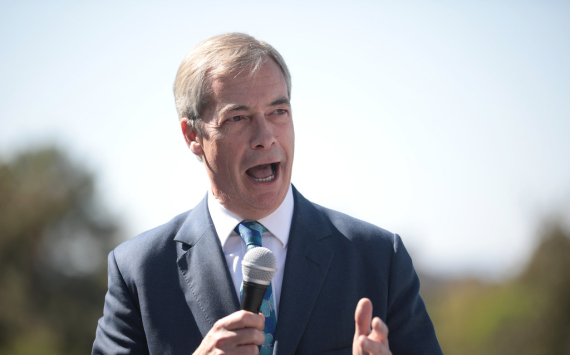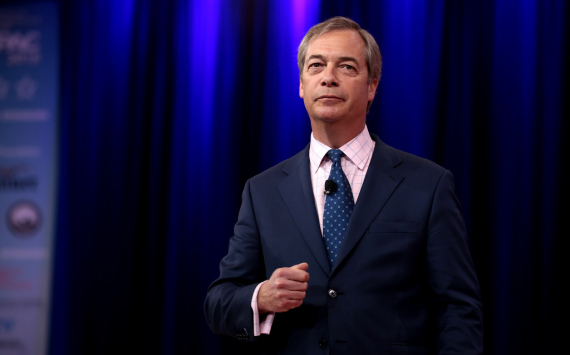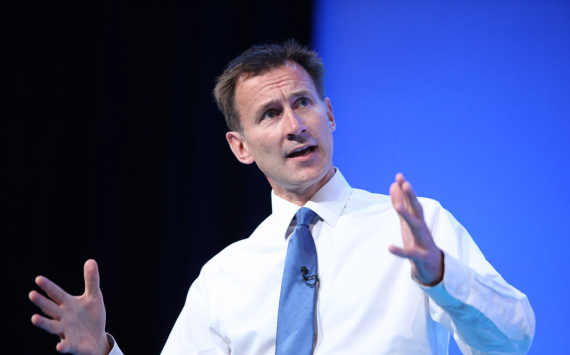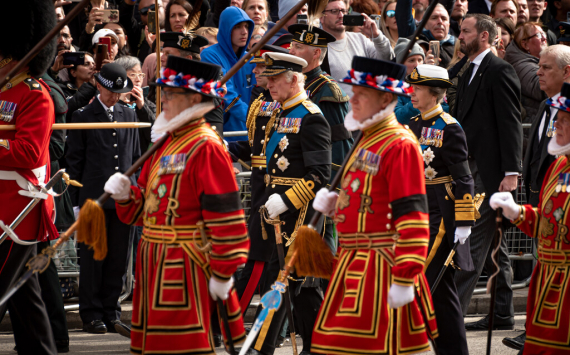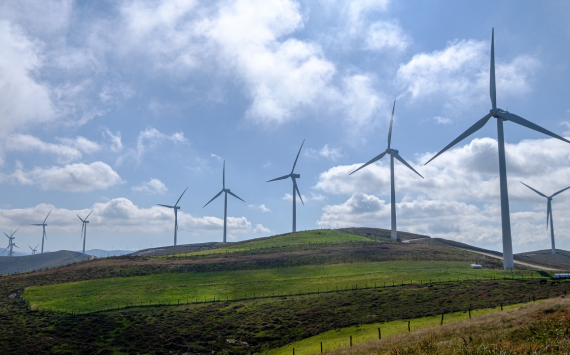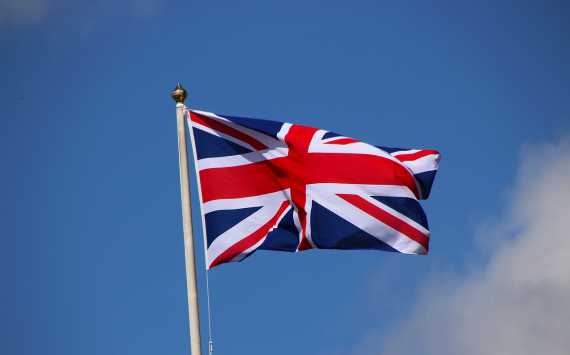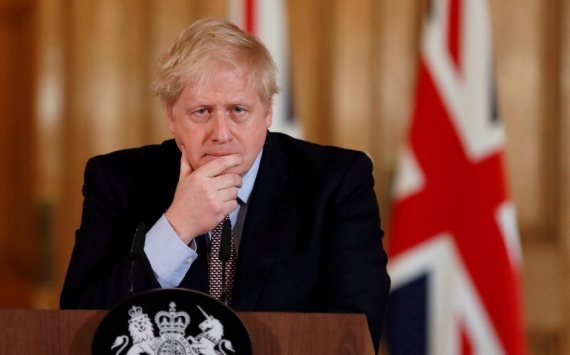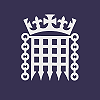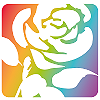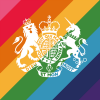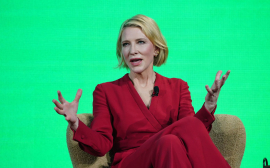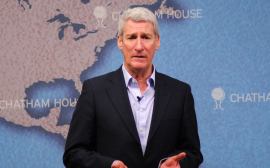- 1. Early life
- 2. Professional career
- 3. Political career
- 4. Personal life
- 5. Bibliography
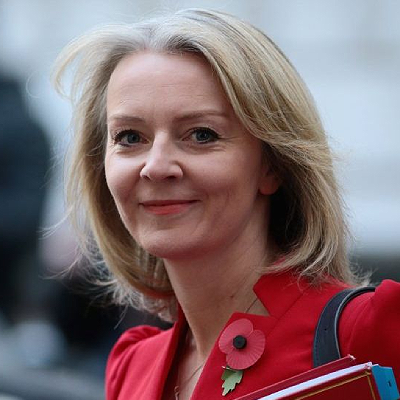
TRUSS
Elizabeth
Mary
Secretary of State for International Trade, President of the Board of Trade, Minister for Women and Equalities.
Organization: Conservative Party (UK)
Date of Birth: 26 July 1975
Age: 49 years old
Place of Birth: Oxford, England
Zodiac sign: Leo
Profession: Minister
Biography
Elizabeth Mary Truss (born 26 July 1975), known as Liz Truss, is a British politician serving as Secretary of State for International Trade and President of the Board of Trade since July 2019 and Minister for Women and Equalities since September 2019. A member of the Conservative Party, she has served as Member of Parliament (MP) for South West Norfolk since 2010. Truss was Environment Secretary from 2014 to 2016, Justice Secretary and Lord Chancellor from 2016 to 2017 and Chief Secretary to the Treasury from 2017 to 2019.
After graduating from the University of Oxford in 1996, Truss worked in sales and as an economist, and was deputy director at the think-tank Reform, before becoming a member of parliament at the 2010 general election. As a backbencher, she called for reform in a number of policy areas, including childcare, maths education, and the economy. She founded the Free Enterprise Group of Conservative MPs, and authored or co-authored a number of papers and books, including After the Coalition (2011) and Britannia Unchained (2012).
Truss was a Parliamentary Under-Secretary of State at the Department for Education from 2012 to 2014, with responsibility for education and childcare. She was the Secretary of State for the Environment, Food and Rural Affairs from 2014 to 2016. On 14 July 2016, she was appointed Secretary of State for Justice and Lord Chancellor by Theresa May, succeeding Michael Gove, and becoming the first female Lord Chancellor in the thousand-year history of the role (if not counting Eleanor of Provence in 1253). In June 2017, Truss was appointed Chief Secretary to the Treasury following the 2017 general election. Truss supported Boris Johnson’s leadership bid in 2019; after Johnson was appointed Prime Minister, he appointed Truss as President of the Board of Trade and International Trade Secretary, succeeding Liam Fox.
Early life
Truss was born on 26 July 1975 in Oxford, England, to John Kenneth and Priscilla Mary Truss. She was raised in a left-wing household: her father was a professor of pure mathematics at the University of Leeds, while her mother was a nurse, teacher, and member of the Campaign for Nuclear Disarmament. Truss has described both as being "to the left of Labour". When Truss later ran for election to Parliament, her mother agreed to campaign for her while her father declined to do so.
The family moved to Scotland when she was four years old. Truss attended West Primary School in Paisley, Scotland, followed by Roundhay School, a comprehensive school in north-east Leeds. She lived in Canada for a year, and contrasts the competitive attitude in schooling there with the "trendy" education she received in Leeds. She read Philosophy, Politics and Economics at Merton College, Oxford.
Truss was President of Oxford University Liberal Democrats and a member of the national executive committee of its youth and student wing. She also expressed republican sentiments at the 1994 Liberal Democrats conference. Truss joined the Conservative Party in 1996.
Professional career
After graduating in 1996, Truss worked for Shell as a commercial manager and Cable & Wireless as economics director, and became a qualified management accountant.
After losing her first two elections, Truss became the full-time deputy director of Reform in January 2008, where she advocated more rigorous academic standards in schools, a greater focus on tackling serious and organised crime, and urgent action to deal with Britain's falling competitiveness. She co-authored The Value of Mathematics and A New Level amongst other reports.
Political career
She served as the chairman of the Lewisham Deptford Conservative Association from 1998 to 2000. She was elected as a councillor in the London Borough of Greenwich in 2006, standing down in 2010, shortly before the end of her term of office.
Parliamentary candidacy
Truss contested election for the Labour constituency of Hemsworth in 2001, swinging the vote by 4%. Prior to the 2005 general election parliamentary candidate for Calder Valley Sue Catling was pressured to resign by the local Conservative Association, whereupon Truss was selected to fight the seat.
Under David Cameron as Conservative leader, Truss was added to the party's 'A List'. In October 2009, she was selected for the South West Norfolk seat by members of the constituency Conservative Association. She won over 50% of the vote in the first round of the final against five other candidates. Shortly after her selection, some members of the constituency association objected to Truss's selection, saying that information about her marital infidelity, reported to have taken place several years earlier, with the Conservative MP Mark Field had been withheld from the members. A motion was proposed to terminate Truss's candidature, but this was defeated by 132 votes to 37 at a general meeting of the association's members three weeks later.
Parliamentary career
Following her election to the House of Commons on 6 May 2010, Truss campaigned for issues including the retention of the RAF Tornado base at RAF Marham in her constituency; over seven months she asked 13 questions in the Commons about RAF Marham, secured a special debate on the subject, wrote dozens of letters to ministers and collected signatures on a petition which was delivered to Downing Street. She also successfully lobbied for the dualling of the A11 west of Thetford. With an eye on the Thetford Forest, in her constituency, she spoke out against the proposal to sell off forests and played a leading role in preventing a waste incinerator being built in West Norfolk. Her work to campaign for design improvements to road junctions in her constituency, notably the A47, led to her being named Road Safety Parliamentarian of the Month by road safety charity Brake in January 2013.
In March 2011, she wrote a paper for the liberal think-tank CentreForum in which she argued for an end to bias against serious academic subjects in the education system so that social mobility can be improved. Truss wrote a further paper for the same think-tank in May 2012, in which she argued for change in the structure of the childcare market in Britain.
In October 2011, she founded the Free Enterprise Group, which has been supported by over 40 other Conservative MPs. In September 2011, together with four other members of the Free Enterprise Group, she had co-authored After the Coalition, a book which sought to challenge the consensus that Britain's economic decline is inevitable by arguing for the return of a more entrepreneurial and meritocratic culture.
A further volume by the same authors, Britannia Unchained, contained the assertion that "Once they enter the workplace, the British are among the worst idlers in the world". It was published in September 2012, and billed as "an insightful and critical assessment of Britain's challenges in the face of future uncertainty". As part of a serialisation in The Daily Telegraph, Truss wrote an article previewing her chapter on the importance of science in education.
Truss has championed Britain following Germany's lead in allowing people to have tax-free and less-heavily regulated "mini-jobs". Since Truss published a paper on the policy for the Free Enterprise Group in February 2012, the policy has been examined by the Treasury as a policy to promote growth.
Truss has campaigned for improved teaching of more rigorous school subjects, especially mathematics. She has noted that only 20% of British students study maths to 18, and called for maths classes to be compulsory for all those in full-time education. Truss herself studied maths and further maths at A level. She has argued that comprehensive school pupils are being "mis-sold" easy, low-value subjects to boost school results: comprehensive school pupils are six times as likely to take media studies at A-level as privately educated pupils. Truss has also criticised the over-reliance on calculators to the detriment of mental arithmetic.
From March 2011, she was a Member of the Justice Select Committee, remaining on the committee until her appointment as a government minister.
Ministerial career
Junior ministerial career (2012–2014)
On 4 September 2012, Truss was appointed as Parliamentary Under-Secretary of State at the Department for Education, with responsibility for childcare and early learning, assessment, qualifications and curriculum reform, behaviour and attendance, and school food review. In this role, she developed some of the policy areas that she had pursued as a backbencher.
In January 2013, she announced proposals to reform A-Levels, by concentrating examinations at the end of two-year courses. She sought to improve British standards in maths for fear that children are falling behind those in Asian countries, and led a fact-finding visit to schools and teacher-training centres in Shanghai in February 2014 to see how children there have become the best in the world at maths.
Truss also outlined plans to reform childcare, intended to overhaul childcare qualifications, and provide more choice of quality education and care for parents. The proposed reforms were broadly welcomed by some organisations such as the charity. Children, the Confederation of British Industry and the College of West Anglia. However, the proposals met opposition from others. The TUC general secretary Frances O'Grady and the then Shadow Education Secretary Stephen Twigg were among those criticising the reforms, echoed by some parents and childcare bodies, such as the charity National Day Nurseries Association.
The columnist Polly Toynbee was highly critical of the minister's plans, and challenged Truss to demonstrate how to care for two babies alongside four toddlers on her own. Truss responded to Toynbee's challenge by saying that being an early educator was a very demanding job, requiring great and specialist expertise, for which she was not trained. In the event, aspects of the reforms relating to relaxation of childcare ratios were blocked by the Deputy Prime Minister Nick Clegg.
Secretary of State for Environment, Food and Rural Affairs
In a 15 July 2014 cabinet reshuffle, Truss was appointed Secretary of State for Environment, Food and Rural Affairs, replacing Owen Paterson. In apparent contrast to her predecessor, Truss declared that she fully believed that climate change is happening, and that "human beings have contributed to that".
In November 2014, Truss launched a new 10-year bee and pollinator strategy to try to reverse the trend of falling bee populations, including a strategy to revive traditional meadows which provide the most fertile habitat for pollinators. In July 2015, she approved the limited temporary lifting of an EU ban on the use of two neonicotinoid pesticides, enabling their use for 120 days on about 5% of England's oil seed rape crop to ward off the cabbage stem flea beetle; campaigners have warned that pesticides have been shown to harm bees by damaging their renowned ability to navigate home.
Truss cut taxpayer subsidies for solar panels on agricultural land, as her view was that the land could be better used to grow crops, food and vegetables. She described farming and food as "hotbeds of innovation" and promoted the production and export of British food, including cheese, pork pies and apples. Her remarks at the Conservative Party conference in 2014 that "We import two-thirds of our cheese: that is a disgrace!", and her "opening up new pork markets" in Beijing were mocked on the satirical current affairs programme Have I Got News For You?
In March 2015 she was one of only two Cabinet Ministers to vote against the government's proposals to introduce plain packaging for cigarettes, in what was technically a free vote.
Critics who have attempted to engage with her, according to George Monbiot in The Guardian, have said that she is "indissolubly wedded to a set of theories about how the world should be, that are impervious to argument, facts or experience. She was among the first ministers to put her own department on the block in the latest spending review, volunteering massive cuts. She seems determined to dismantle the protections that secure our quality of life: the rules and agencies defending the places and wildlife we love."
Secretary of State for Justice and Lord Chancellor
On 14 July 2016, Truss was appointed as Secretary of State for Justice and Lord Chancellor in Theresa May's first ministry. Truss became the first woman to hold either position. The decision to appoint her was criticised by the then Minister of State for Justice Lord Faulks, who resigned from the government, questioning whether she was going to have the clout to be able to stand up to the Prime Minister when necessary, on behalf of the judges. Truss herself said that he did not contact her before going public with his criticism, and she had never met or spoken to him.
In November 2016, Truss was further criticised, including by former Attorney General Dominic Grieve and the Criminal Bar Association, for failing to support more robustly the judiciary and the principle of judicial independence, after three judges of the Divisional Court came under attack from politicians and sections of the press for ruling against the government in the article 50 Brexit case. Lord Falconer, the former Lord Chancellor, who had previously suggested that, like her immediate predecessors Chris Grayling and Michael Gove, she lacked the essential legal expertise that the constitution requires, called for her to be sacked as Justice Secretary as her perceived inadequate response "signals to the judges that they have lost their constitutional protector."
Truss denied she had failed to defend the judges. "An independent judiciary is the cornerstone of the rule of law, vital to our constitution and freedoms", she wrote. "It is my duty as Lord Chancellor to defend that independence. I swore to do so under my oath of office. I take that very seriously and I will always do so." She also said that the independent judiciary was robust enough to withstand attack by The Daily Telegraph and Daily Mail. However, in March 2017, the Lord Chief Justice, Lord Thomas of Cwmgiedd told the House of Lords constitution select committee that Truss was "completely and utterly wrong" to say she could not criticise the media adding that
I can understand how the pressures were on in November, but she has taken a position that is constitutionally, absolutely wrong – the circuit judges were very concerned. They wrote to the Lord Chancellor because litigants in person were coming and saying "you're an enemy of the people" – I don't think it is understood either how absolutely essential it is that we [the judges] are protected because we have to act as our oath requires us without fear or favour.
Following a significant rise in prison violence incidents in 2015 and 2016, Truss announced in November 2016 a £1.3 billion investment programme in the prison service and the recruitment of 2,500 additional prison officers, partly reversing the cuts made under the previous coalition government.
Chief Secretary to the Treasury
On 11 June 2017, following the general election, Truss was moved to the position of Chief Secretary to the Treasury, attending the cabinet but not a full member of it, in what was seen by some as a demotion.
Truss developed an enthusiasm for cultivating her presence on Twitter and Instagram. The Times described this as an unorthodox approach that had won her fans. She was also closely involved in the launch of the free market campaign group, Freer. Some of her civil servants were reported as finding her tenure as Chief Secretary "exhausting" because of her demanding work schedule and her habit of asking officials multiplication questions at random intervals.
In June 2018, Truss gave a speech at the London School of Economics outlining her declared commitment to freedom and individual liberty. She criticised regulations that get in the way of people's lives and warned that raising taxes could see the Tories being "crushed" at the polls; in particular, she criticised ministerial colleagues who should, in her view, realise "that it's not macho just to demand more money. It's much tougher to demand better value and challenge the blob of vested interests within your department." Her speech also contained jokes at the expense of other ministers, including Michael Gove. She was reportedly berated for this by the Prime Minister Theresa May, although Truss and Gove both maintained that they were good friends.
In September 2018, during a three-day visit to Washington, Truss met with a series of rightwing American think tanks to discuss deregulation and the benefits of Reaganomics.
In 2019, Truss declared that she could be a candidate for the leadership of the Conservative Party to succeed May. However she ultimately elected not to stand and endorsed Boris Johnson.
Secretary of State for International Trade, President of the Board of Trade and Minister for Women and Equalities
After Boris Johnson became Prime Minister, Truss was tipped for promotion in return for her support during his leadership campaign, during which she advised Johnson on economic policy, and was the architect of plans to cut taxes for people earning over £50,000.Consequently, it was thought she would be appointed Chancellor of the Exchequer or Business Secretary but was instead promoted to the position of Secretary of State for International Trade, succeeding Liam Fox and becoming the first female to hold the position.[citation needed] Following the resignation of Amber Rudd, Truss was additionally appointed Minister for Women and Equalities.
Twice in September 2019, Truss said that the Department for International Trade had "inadvertently" allowed shipping of military supplies to Saudi Arabia in contravention of an order of the Court of Appeal. While Truss apologised to a Commons committee on arms export controls, opposition MPs said her apology was insufficient and called for her to resign for breaking the law.
On 19 March 2020, Truss introduced to Parliament the Trade Act 2021.
In August 2020 meetings Truss held with the Institute of Economic Affairs, were removed from the public record, raising concerns about integrity, transparency and honesty in public office. Truss claimed the meetings were "personal discussions".
Truss undertook negotiations for a post-Brexit free trade agreement between the UK and Japan. She held meetings with the Japanese Minister for Foreign Affairs Toshimitsu Motegi, before an issue in relation to stilton cheese caused the talks to stall.[102] An agreement between the two countries was struck in September 2020, which Truss said would result in "99% of exports to Japan" being "tariff-free". It was the first major trade deal the UK had signed since leaving the European Union, and hailed as a "historic moment" by Truss.
In December 2020, Truss made a speech on equality policy stating that the UK focused too heavily on “fashionable” race, sexuality, and gender issues at the expense of poverty and geographical disparity. It also attacked postmodernist philosophy and Foucault. In the speech, she announced that the government and civil service would no longer be using unconscious bias training.
Personal life
In 2000, Truss married accountant Hugh O'Leary. The couple have two daughters.
Bibliography
- Truss, Liz (June 2008). The value of mathematics. Reform.
- Truss, Liz (June 2009). A new level. Reform.
- Truss, Liz (15 March 2011). Academic rigour and social mobility: how low income students are being kept out of top jobs. Centre Forum. Archived from the original on 19 April 2012.
- Truss, Liz; et al. (2011). After the Coalition. London: Biteback Publishing. ISBN 9781849542128.
- Truss, Liz (May 2012). Affordable quality: new approaches to childcare (PDF). Centre Forum. Archived from the original (PDF) on 9 November 2016. Retrieved 30 June 2012.
- Truss, Liz; et al. (2012). Britannia unchained: global lessons for growth and prosperity. Houndmills, Basingstoke, Hampshire New York: Palgrave Macmillan. ISBN 9781137032249. Details.
Mentions in the news
Mentioned together
Born in one day
(Rabbit) .
Horoscope Leo: horoscope for today, horoscope for tomorrow, horoscope for week, horoscope for month, horoscope for year.





